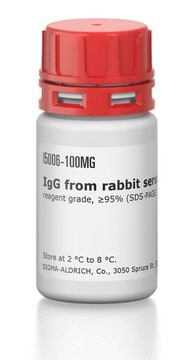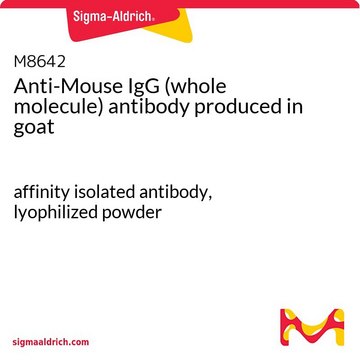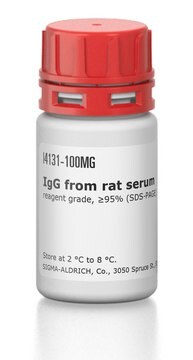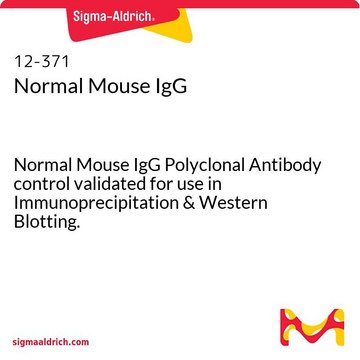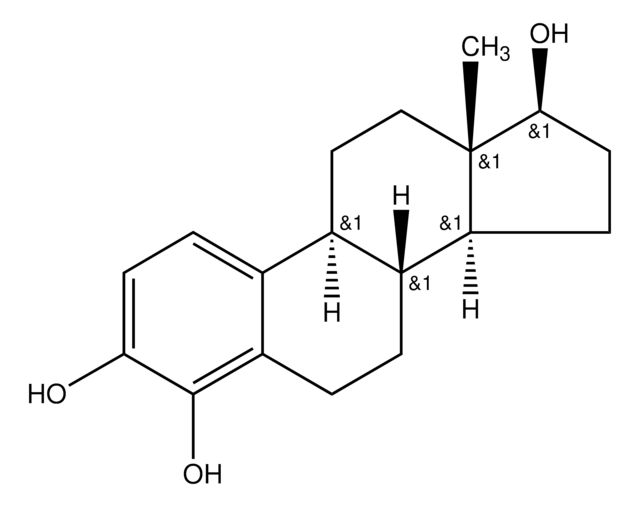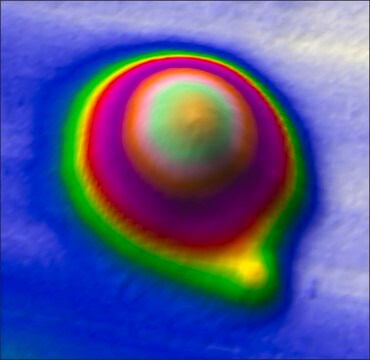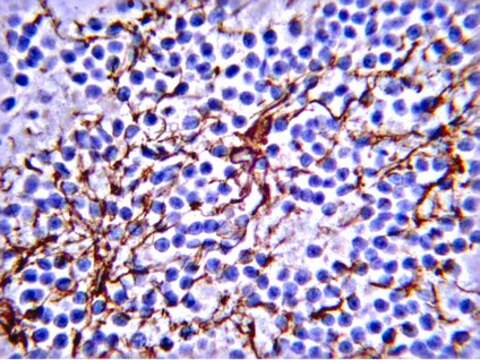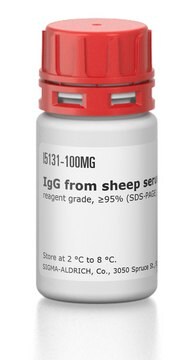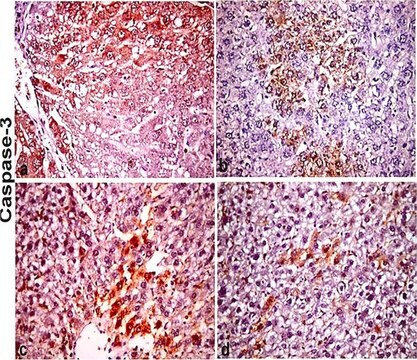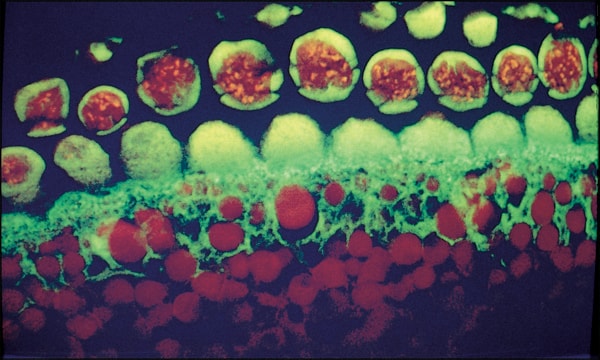I5381
IgG from mouse serum
reagent grade, ≥95% (SDS-PAGE), lyophilized powder
Synonym(s):
Mouse IgG
Sign Into View Organizational & Contract Pricing
All Photos(1)
About This Item
Recommended Products
conjugate
unconjugated
Quality Level
grade
reagent grade
Assay
≥95% (SDS-PAGE)
form
lyophilized powder
composition
Protein, ≥80%
storage temp.
2-8°C
target post-translational modification
unmodified
Looking for similar products? Visit Product Comparison Guide
General description
IgG antibody subtype is the most abundant serum immunoglobulins of the immune system. It is secreted by B cells and is found in blood and extracellular fluids and provides protection from infections caused by bacteria, fungi and viruses. Maternal IgG is transferred to fetus through the placenta that is vital for immune defence of the neonate against infections
Mouse IgG is purified from normal mouse serum by fractionation and ion-exchange chromatography.
Mouse IgG is purified from normal mouse serum by fractionation and ion-exchange chromatography.
Application
Purified mouse IgG may be used as a reference antigen, standard, blocking agent, or coating protein in a variety of immunoassays including ELISA, dot immunobinding, Western immunoblotting, immunodiffusion, and immunoelectrophoresis. Other applications include starting materials for the preparation of immunogens and solid phase immunoadsorbents. Mouse IgG was used as standard in ELISA and chromatin immunoprecipitation assay. It was used to coat nano particles in the development of biosensors.
Physical form
Lyophilized from 0.01 M phosphate buffer, pH 7.2, with 0.015 M NaCl
Disclaimer
Unless otherwise stated in our catalog or other company documentation accompanying the product(s), our products are intended for research use only and are not to be used for any other purpose, which includes but is not limited to, unauthorized commercial uses, in vitro diagnostic uses, ex vivo or in vivo therapeutic uses or any type of consumption or application to humans or animals.
Storage Class Code
11 - Combustible Solids
WGK
WGK 3
Flash Point(F)
Not applicable
Flash Point(C)
Not applicable
Personal Protective Equipment
dust mask type N95 (US), Eyeshields, Gloves
Certificates of Analysis (COA)
Search for Certificates of Analysis (COA) by entering the products Lot/Batch Number. Lot and Batch Numbers can be found on a product’s label following the words ‘Lot’ or ‘Batch’.
Already Own This Product?
Find documentation for the products that you have recently purchased in the Document Library.
Customers Also Viewed
Bin Li et al.
International immunology, 19(7), 825-835 (2007-06-26)
We have found that FOXP3 is an oligomeric component of a large supramolecular complex. Certain FOXP3 mutants with single amino acid deletions in the leucine zipper domain of FOXP3 are associated with the X-linked autoimmunity-allergic dysregulation (XLAAD) and immunodysregulation, polyendocrinopathy
Fluorescent Biorecognition of Gold Nanoparticle-IgG Conjugates Self-Assembled on E-Beam Patterns
Powell T and Yoon JY
Biotechnol. Progress, 22, 106-110 (2006)
Lonnie J Lucas et al.
Biosensors & bioelectronics, 23(5), 675-681 (2007-09-18)
Double detection of microsphere light scattering and quantum dot emission was demonstrated for lab-on-a-chip immunoassay without using stationary support. We conjugated quantum dots (QDs) onto microspheres to enable multiplex assays as well as to enhance the limit of detection (LOD).
Panojot Bifsha et al.
Molecular neurobiology, 54(7), 4921-4935 (2016-08-16)
Dysfunction of midbrain dopaminergic (mDA) neurons is involved in Parkinson's disease (PD) and neuropsychiatric disorders. Pitx3 is expressed in mDA neuron subsets of the substantia nigra compacta (SNc) and of the ventral tegmental area (VTA) that are degeneration-sensitive in PD.
C Rebouissou et al.
Blood, 91(12), 4727-4737 (1998-06-17)
Agonist antihuman gp130 transducer monoclonal antibodies (MoAbs) were used in SCID mice to grow myeloma cells whose survival and proliferation is dependent on gp130 transducer activation. The agonist anti-gp130 MoAbs neither bound to murine gp130 nor activated murine cells and
Our team of scientists has experience in all areas of research including Life Science, Material Science, Chemical Synthesis, Chromatography, Analytical and many others.
Contact Technical Service
